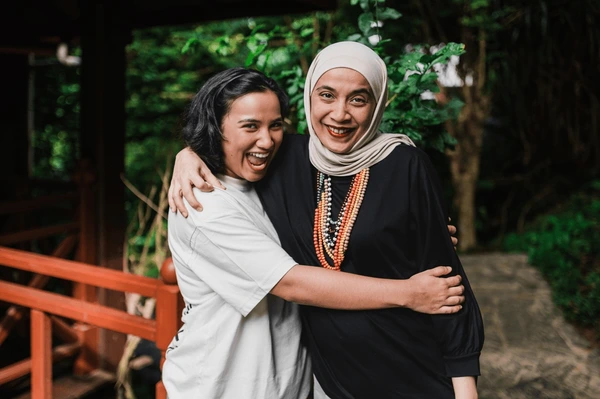On TikTok, a young Egyptian woman, Hend Sayshi, spoke about living between two versions of herself, the one shaped by family expectations and the one she discovered through independence. She explained that while she often defaults to the version molded by family dynamics and collective priorities, living and traveling alone allowed her to meet another side of herself, one defined by choice rather than obligation.
Her reflection resonated with hundreds of Arab women who shared similar experiences, revealing a broader reality in Arab societies, where individuality is often intertwined with the expectations of family and community.
Scholars have long pointed to this divide between collectivist and individualist cultures. A 2003 study in the journal Intercultural Education found that Egypt scored significantly higher on collectivism compared to Germany, where self-expression and independence are more central to the culture.
In collectivist contexts, people are encouraged to see themselves as part of a group, and developing a sense of identity often means balancing personal desire with family duty and social expectations.
This tension between self and society has long been reflected in Egyptian literature. In her 1977 book The Hidden Face of Eve, Egyptian writer and feminist Nawal El Saadawi explored how girls are raised within family systems that demand obedience and prioritize family honor, shaping what’s considered “good” behavior for women, often at the cost of their own desires.
Decades later, in her 2015 book Headscarves and Hymens, Egyptian-American writer Mona Eltahawy echoed that struggle, arguing that many Arab women grow up measuring their choices through the eyes of others, a silent audience of family, community, and tradition. Both writers capture how deeply women’s sense of self is shaped not only by what they want, but by what they fear will be said if they choose differently.
Even when Arab women leave the familial home, the tension rarely disappears. A 2015 study from Illinois State University found that Arab American women living in the U.S. often described themselves as moving between two worlds: one rooted in heritage and family obligation, and another seeking self-expression. Distance offered freedom, but it also deepened the sense of carrying two identities at once.
A recurring theme that keeps emerging from the study’s accounts is that self-discovery often comes later in life, prompted by major life changes such as relocation, marriage, or divorce. For many, it is these turning points that finally create the space to reflect on who they are outside of family or societal expectations.
The Cost of Sacrifice
Suppressing individuality often comes with costs.
Research shows that consistently silencing personal needs for the sake of family or social expectations can affect mental health over time. A 2016 study published in the International Journal of Psychology found that people in collectivist cultures suppress their emotions more often than those in individualist ones, especially in day-to-day interactions.
While this helps preserve social harmony, it also means feelings are left unexpressed. Similarly, a 2020 paper in Journal of Affective Disorders linked frequent suppression to higher levels of depression, showing that the emotional toll of putting community before self can run deep.
Yet, suppression is not simply negative. In collectivist societies, the very act of holding back often ensures smoother relationships and stronger family bonds, offering a kind of social safety net that individualistic cultures do not always provide. But harmony can come at a cost: delayed self-discovery, and for some women, a sense of guilt when they finally begin to prioritize themselves.
A 2021 study published by Long Island University on shame and depression among Middle Eastern women found that cultural expectations and family-centered values often intensify feelings of guilt when women pursue autonomy. In cultures where belonging is moralized, independence can feel like betrayal, and personal freedom rarely arrives without an echo of remorse.
It is this duality, the tension between sacrifice and support, that shapes how many women navigate their identities. It is also the same cultural framework that pressures them to put others first, ensuring they are rarely left to struggle alone.







Comments (0)